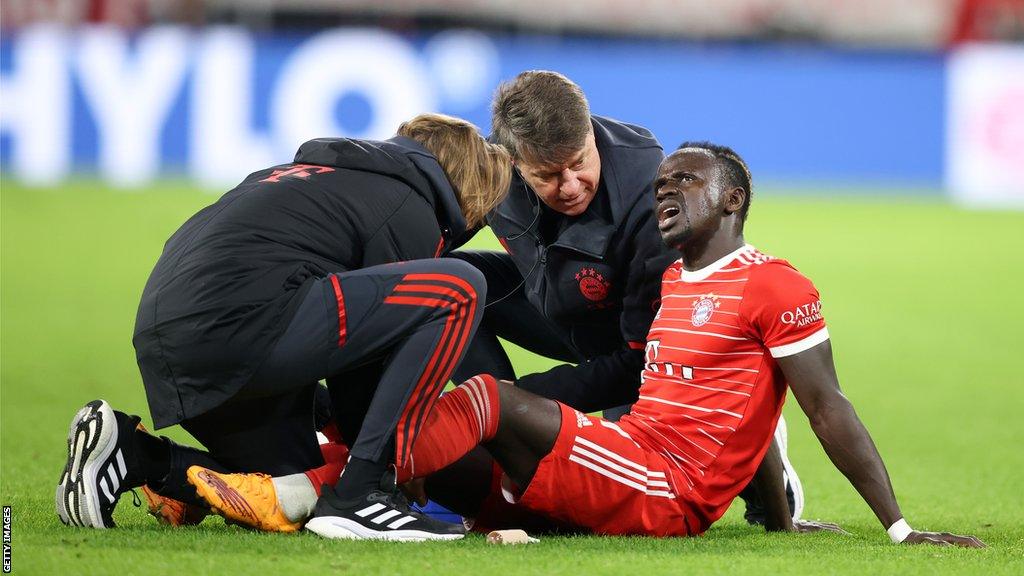World Cup 2022: Fifpro says players are 'pushed past acceptable limits'
- Published
- comments

Sadio Mane was named in the Senegal squad despite a knee injury
Footballers are being "pushed past acceptable limits" by a "saturated" schedule to allow for a mid-season World Cup, says players' union Fifpro.
The tournament in Qatar gets under way on 20 November.
However, many domestic games are taking place this weekend before players join up with their national squads.
A Fifpro report said the "unsustainable" workload damages players' physical and mental health and puts their "career longevity at risk".
The number of games has become more of an issue in recent years with the introduction of new tournaments at club and international level such as the Nations League and Europa Conference League.
Fifpro's comments are part of a report that will be published next week looking into player workload and how it has been impacted by the 2022 World Cup.
The key findings, which have been released, are:
In many regions, additional fixtures have been crammed into an already saturated early part of this season, exposing players to increased risk.
In other regions, players have been competitively underloaded due to inadequate calendar planning.
Significantly reduced preparation and recovery periods before and after the World Cup pose an ominous threat to player health and hinder performance optimisation.
The report highlights Tottenham and South Korea forward Son Heung-min, who played more than 600 minutes of football in October with games every three or four days.
It says he completed more than 146,000km of international travel with club and country since the beginning of last season, crossing 132 time zones.
Son is a fitness doubt for the World Cup after fracturing an eye socket during Spurs' win at Marseille on 1 November.
The report also highlights that, since the beginning of last season, Senegal striker Sadio Mane played 93 competitive matches for Liverpool and Bayern Munich before he suffered a knee injury against Werder Bremen on Wednesday, putting his World Cup participation in doubt.
"The number of players speaking up shows the degree of concern players have and there will be many, many more in dressing rooms who just don't publicly speak about it," said Fifpro general secretary Jonas Baer-Hoffmann.
"In unions that work in the biggest markets where you have clubs and types of players who play basically all the time, they report back to us that in the dressing room visits this is the number one topic for many players that they see really impacting their careers.
"There is a lot of concern."
There has also been criticism of the lack of recovery time for players after the World Cup.
The final takes place on 18 December, two days before the English domestic season resumes with the Carabao Cup fourth round. The Premier League returns on 26 December.
"Something definitely worth mentioning is the mental effect, particularly for the players who are playing in the latter stages of the World Cup where there is high pressure and high states," said Darren Burgess, former performance director at Arsenal, Liverpool and Australia.
"[It could] potentially be between eight and 15 days from their last World Cup game and first club game and that is absolutely not enough time to mentally recover and digest and process the experience they have had at the World Cup.
"It will undoubtedly lead to a lot of mental stress."

The legendary 'Tosh': A unique and nostalgic film celebrating the remarkable Welsh footballer
She scammed the world, then vanished: The 'Cryptoqueen' who persuaded millions to join her financial revolution
